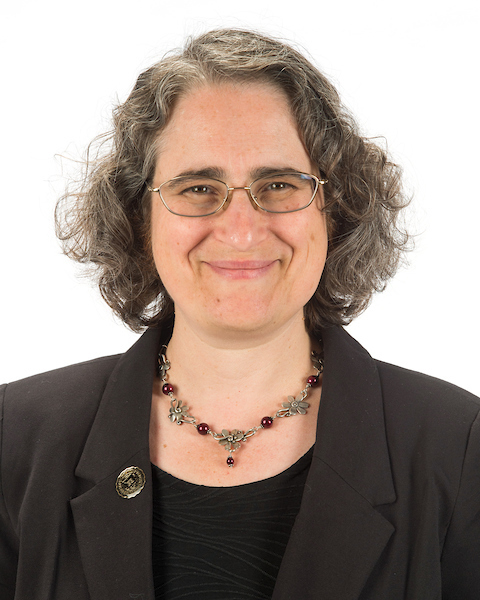
Professor Marya Lieberman and the Distributed Pharmaceutical Analysis Lab (DPAL) at the University of Notre Dame today announced a partnership with ARTiFACTS, creator of the world’s first blockchain-based platform for scientific and academic research, to develop a prototype solution for tracking pharmaceutical chain-of-custody information in real-time using distributed ledger technology. Working with ARTiFACTS, DPAL will record all physical handling and research metadata starting from the point-of-purchase of prescription drugs and sustained throughout the testing, analysis and reporting requirements.
Up to 2 billion people worldwide lack access to authenticated medicines. The World Health Organization has estimated 1 in 10 medical products in low- and middle-income countries (LMICs) are substandard or falsified, with some experts estimating monetary losses of between US$70bn and US$200bn. More troubling is the human cost; 200,000 lives are lost per year in Africa to fake antimalarial drugs alone.
The new partnership between DPAL and ARTiFACTS will reduce the damage to public health from substandard drugs by accelerating and expanding the process whereby they are identified.
Current efforts to reduce fraud in the global pharmaceutical supply chain are heavily reliant on time-consuming manual effort and lack transparency, with no robust chain-of-custody. ARTiFACTS is developing a prototype aligned with the DPAL use case that will provide an immutable and trusted transcript of all critical “Who-What-Where” information about each compound. Underlying data will be housed permanently in an immutable, blockchain-based ledger of record for use by researchers, public health and regulatory authorities, and organizations in the manufacturing and distribution supply chain.
The partnership will harness Web 3.0 technologies to:
- Make all relevant information directly available online for researchers and regulatory authorities
- Create a trusted and secure chain-of-custody of drug samples and their metadata
- Scale-up across the DPAL participant community
- Deliver actionable findings that contribute to improved public health outcomes
Research confirms that by sustaining an increased frequency of sample collection and analysis and providing timely reporting to local authorities, the quality of pharmaceuticals can be favorably impacted. By scaling the DPAL activities, it will be possible to dramatically reduce the harm caused by substandard and falsified drugs in LMICs with faster detection and remedial activities.
“ARTiFACTS is an ideal partner for our use case because they bring expertise in designing systems for managing workflow and securing the provenance of research materials, ” said Marya Lieberman, Professor in the Department of Chemistry and Biochemistry at the University of Notre Dame. “The DPAL project has pioneered innovative and low-cost ways of bringing analytical chemistry out of the lab and into the world. Working with our network of collaborating organizations, DPAL has made significant inroads by conducting post-market surveillance of drugs in local markets where the risks of substandard and falsified products are the greatest. Partnering with ARTiFACTS, we will demonstrate our ability to increase the frequency of product testing with full-transparency of the drug sample history, both of which are necessary to conduct this work at scale and impact the quality of drugs,” Lieberman added.
“ARTiFACTS is pleased to partner with the Lieberman Lab at the University of Notre Dame to dramatically improve public health in LMICs, ” said David Kochalko, CEO and Co-Founder of ARTiFACTS. “We will enable a huge expansion of DPAL’s activities by applying ARTiFACTS’ patented expertise in managing data and workflow. By providing a secure and immutable chain-of-custody of metadata about participants, tasks, location and analysis results, regulatory authorities will be empowered to affect meaningful improvements in the drug supply chains serving their constituents. Success with this prototype will position DPAL and ARTiFACTS to pursue development of a commercial scale system to expand coverage of drugs, countries and regions globally,” added Kochalko.
About the Distributed Pharmaceutical Analysis Lab
Many of the pharmaceuticals that are purchased in the developing world are substandard or outright fake drugs. Although there is no global system for monitoring the quality of medicine, study after study reveals pervasive poor quality and products that are worthless or even harmful to patients. Many countries in the developing world do not have the technological infrastructure or regulatory resources to keep low quality medicines off the market shelves. And since the pharmaceutical trade is a lucrative global market, low quality medicine can cross borders and harm people anywhere in the world. Led by Professor Marya Lieberman in the Department of Chemistry and Biochemistry at the University of Notre Dame, the DPAL project seeks to understand, innovate and impact the quality of public health in low and middle-income countries by increasing analytical resources for detecting poor-quality pharmaceutical products. Students and faculty at more than 25 colleges and universities participate by first qualifying their analytical instrumentation and then performing careful analyses of pharmaceuticals collected by collaborators in LMICs. The DPAL team has analyzed over 1,000 samples, discovering 168 samples that failed basic quality tests, such as antibiotics that are adulterated with chalk or talcum powder.
To learn more, visit the paper analytical device website.
For more information on DPAL contact Professor Marya Lieberman.
About ARTiFACTS
ARTiFACTS, creators of the world's first blockchain-based collaboration and attribution platform for scholarly research, provides a user-friendly platform, purpose-built for academic and scientific research that leverages blockchain technology. By using the ARTiFACTS platform, researchers are able to immutably prove ownership and existence of work, expand access to their research artifacts, provide and receive real-time attribution for novel work and more comprehensively, and rapidly build and demonstrate their body of scholarly contributions. To learn more, visit artifacts.ai and follow on Twitter @ARTiFACTS_ai.
For more information on ARTiFACTS contact Emma Boswood.
Originally published by at science.nd.edu on October 20, 2021.